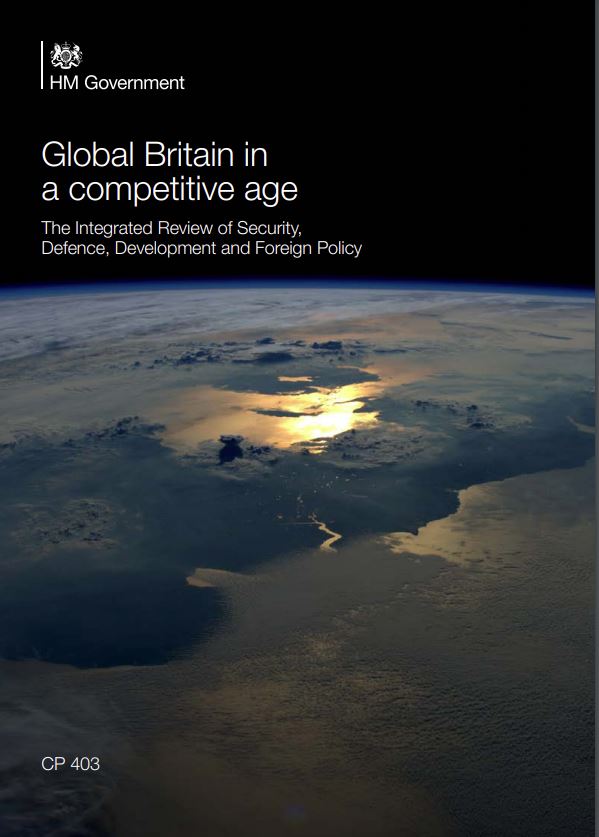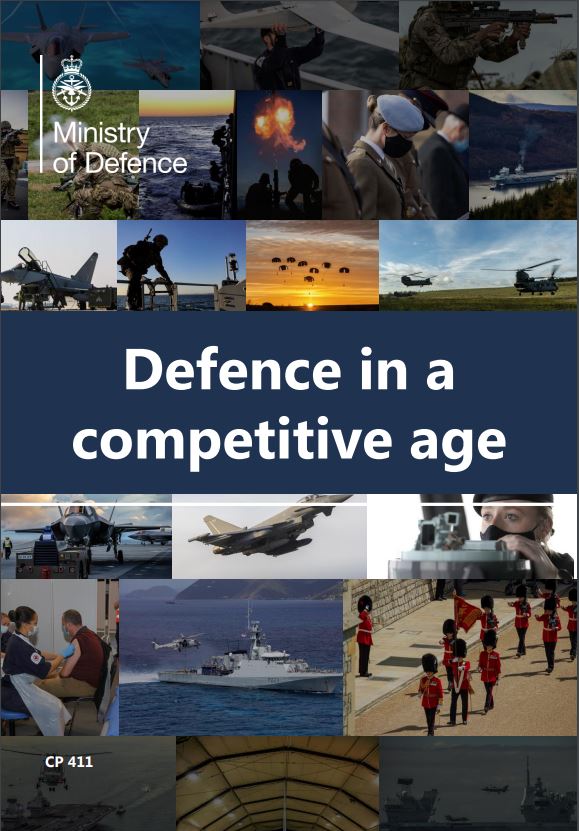On 16 March 2021, the government published “Global Britain in a Competitive Age”, the centrepiece of its long-awaited Integrated Review of Security, Defence, Development, and Foreign Policy
It presents a “whole-of-government” and “whole-of-society” approach to national security and resilience, going well beyond traditional notions of defence and foreign policy. The goal is to defend “our people, territory, critical national infrastructure (CNI), democratic institutions and way of life”.
Recognizing that today’s security environment is more competitive and volatile than ever, “Global Britain” stresses the need to work internationally and multilaterally with allies and other nations which share the United Kingdom’s commitment to liberal democracy.
It places the transatlantic relationship and NATO as the first two elements in its “Strategic Framework”, and it lists a vast array of challenges along with an enormous variety of policy tools to address them.
Just a few days after the publication of “Global Britain” the government released its report on how Britain’s armed forces would be adapted to provide the defence components of the Integrated Review.
“Defence in a Competitive Age” heralds several major shifts in capabilities with an emphasis on high technology such as automation and drones, and a more assertive and proactive approach to international engagement.
Following hard on the heels of “Defence in a Competitive Age” came another report on “Defence and Industrial Strategy” which seeks not only to transform the defence acquisition process, but to defence procurement within an industrial policy framework which includes concepts such as supply chain resilience and “social value” objectives in awarding contracts.
Find out more...
The rationale for the Integrated Review – and the complexities involved in conducting it – were laid out in ATA UK’s “Explainer” from December 2020.
A clear, 10-page summary of the Integrated Review – specifically of “Global Britain” – has been produced by the House of Commons Library along with a 2-page, online “bullet-point” list of key points.
The Royal United Services Institute has an excellent page that lists its many publications related to the Integrated Review.
The Policy Exchange think tank has posted useful reflections on the Integrated Review as well as a useful account of reactions to the Integrated Review in United States policy community.
These three documents should be read alongside a fourth, the “Integrated Operating Concept 2025” which appeared last autumn. This, too, took a fresh look at defence, and underlined the changing character of warfare, where “traditional distinctions between ‘peace’ and ‘war’, ‘public’ and ‘private’, ‘foreign’ and ‘domestic’, and ‘state’ and ‘nonstate’ are increasingly out of date.”
It highlighted the need to deal with ‘political warfare’ whereby adversaries use all the instruments of statecraft to “undermine cohesion, to erode economic, political and social resilience, and to challenge our strategic position in key regions of the world. Their goal is to win without fighting: to achieve their objectives by breaking our willpower, using attacks below the threshold that would prompt a warfighting response”
Taken together, these documents pave the way for the development of a UK “grand strategy”, which will take account of all the “levers of power” – defence, diplomacy, foreign policy, development assistance, trade, information, economic incentives and disincentives, etc – that can be brought to bear in the incessant international “grey zone” competition, and all the way up to actual conflict.
Needless to say, the Integrated Review has generated plenty of headlines and reams of analysis; there is something in there to please or annoy everyone, examples being the “tilt” to the Indo-Pacific and the planned increase in the UK’s nuclear stockpile.
However, its wholistic approach and recognition of the new character of international strategic competition can only be welcomed.
Similarly, the injection funding into defence is making a crucial statement about the United Kingdom’s position internationally. It bears repeating that the government has committed an additional £16.5 billion to defence over a four-year period. That comes on top of a previous commitment to increase defence spending by 0.5 per cent for every year of the current parliament. That amounts to an additional cash injection of £24.1 billion over four years.
Drawing all the threads of the Integrated Review together will certainly be a challenge, but together this represents a framework that will surely be followed by many other nations and by NATO as a whole when it embarks on the revision of its Strategic Concept.
The real challenge, of course, lies ahead; can the implementation of the Integrated Review match its impressive vision and ambition?





